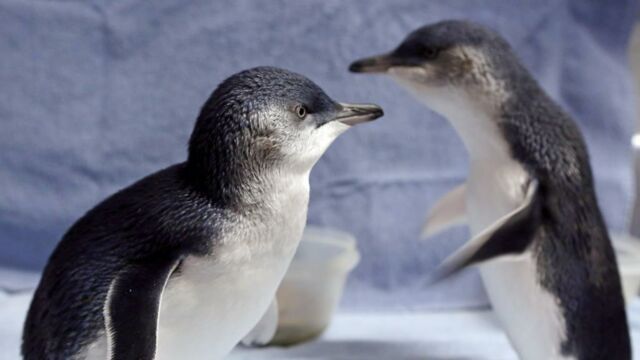Little blue penguins, otherwise known by their Māori name kororā, are the world’s smallest penguins and are native to New Zealand. The country's Department of Conservation (DoC) classes its population as 'at-risk' of extinction, with numbers significantly 'declining' over the past decade.
Discover our latest podcast
Last week, 183 of the species were found dead at Ninety Mile Beach. This is the latest in a phenomenon of dead penguins washing ashore on New Zealand’s beaches in massive numbers.
Mass die-offs of little blue penguins
Recently, locals have found hundreds of penguins washed up dead on the beaches in the North Island. The latest incidents include, as reported by The Guardian:
- 100 dead penguins found dumped last week at Cable Bay.
- 109 found dead at the end of May by locals at Ninety Mile Beach.
- 40 found dead in mid-May by a resident at Tokerau Beach, also in the Northland region.
- At least 20 dead on the same beach at the start of June, as reported by the DoC.
Graham Taylor, a DoC principal science adviser who studies sea birds, believes over 500 penguins have washed ashore since the beginning of May 2022, and that the figure may be nearing 1,000. He says it is impossible to give an accurate number as some people who find the penguins then bury them.
Hi @docgovtnz, 3 dead blue penguins on 90 mile beach today, about 12km north of #Ahipara. All within a 100m stretch of each other. Run over by cars? Or victims of a certain fishing method? #NewZealand#Aotearoa#Wildlife#Penguins@nzherald@NZStuff@Breakfaston1pic.twitter.com/isuo4OV1Yk
— Jeff Rice (@EvolvingCaveman) May 2, 2022
The penguins are starving to death due to climate change
Scientists from the Ministry of Primary Industries undertook testing earlier this year to look for infections and toxins in case a new virus or disease was spreadingthrough the colonies, according to Taylor. However, they determined that the birds were starving to death. Taylor said:
All of the bodies were found to be super underweight. These birds should be around 800 to 1,000 grams, but they were way down around half that weight. There was just no body fat on them, there was hardly any muscle to show. When they get to that stage of emaciation, they can’t dive.
When penguins have no body fat, eventually they die of starvation or hypothermia. According to the DoC, the kororā are not starving due to overfishing. Rather, the mass die-offs are due to rising ocean temperatures, as reported by The Independent.
In addition to some of the hottest ocean temperatures in recorded history, El Niño - the name of warm weather conditions - weather conditions have created 'marine heatwaves.' As the ocean gets warmer, the small fish that the penguins feed on go deeper in search of cooler waters or leave the area completely. Taylor said:
This little species [of penguin] can dive down to 20 or 30 metres routinely, but it’s not that good at diving a lot deeper than that.
In the past, you might have had a lot of good years followed by one bad year where a lot of birds die, but then they rebound in those good years. But if we start to see the balance tipping towards more bad years versus good years, then they’re just not going to be able to recover.
Read more:
⋙ A couple of gay penguins became parents when they received this adorable chick
⋙ Endangered birds to get royal home as Queen offers Sandringham estate for their conservation
⋙ Rare Wild Cat species reappears after supposedly being extinct for 50 years















